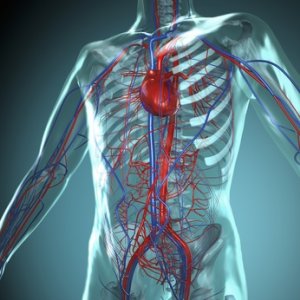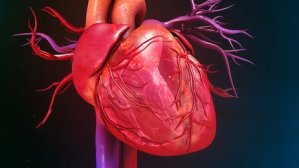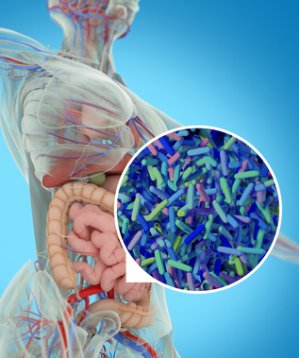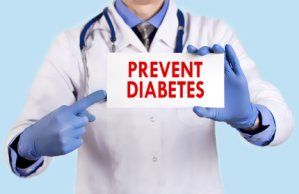afterLoad (456.48KB) (1.88ms)
afterInitialise (1.28MB) (15.46ms)
afterRoute (856.95KB) (4.2ms)
beforeRenderComponent com_content (36.2KB) (318μs)
Before Access::preloadComponents (all components) (197.18KB) (1.21ms)
After Access::preloadComponents (all components) (98.07KB) (671μs)
Before Access::preloadPermissions (com_content) (1.6KB) (16μs)
After Access::preloadPermissions (com_content) (3.29MB) (5.12ms)
Before Access::getAssetRules (id:62 name:com_content.category.20) (130.65KB) (94μs)
After Access::getAssetRules (id:62 name:com_content.category.20) (7.38KB) (67μs)
Before Access::getAssetRules (id:8 name:com_content) (69.13KB) (10.92ms)
After Access::getAssetRules (id:8 name:com_content) (6.17KB) (25μs)
afterRenderComponent com_content (1.41MB) (55.45ms)
afterDispatch (41.52KB) (1.82ms)
beforeRenderRawModule mod_articles_category (READ MORE...) (350.71KB) (4.21ms)
afterRenderRawModule mod_articles_category (READ MORE...) (84.63KB) (32.62ms)
beforeRenderRawModule mod_tags_popular (Search) (4.81KB) (26μs)
afterRenderRawModule mod_tags_popular (Search) (6.68KB) (19.9ms)
beforeRenderRawModule mod_custom (BOOST YOUR IMMUNE DEFENSE) (960B) (23μs)
afterRenderRawModule mod_custom (BOOST YOUR IMMUNE DEFENSE) (4.2KB) (193μs)
beforeRenderRawModule mod_custom (Are you taking supplements) (736B) (13μs)
afterRenderRawModule mod_custom (Are you taking supplements) (1.03KB) (26μs)
beforeRenderRawModule mod_articles_category (Get additionel and more detailed knowledge about) (8.41KB) (20μs)
afterRenderRawModule mod_articles_category (Get additionel and more detailed knowledge about) (44.41KB) (2.4ms)
beforeRenderRawModule mod_custom (Antiaging) (6.97KB) (24μs)
afterRenderRawModule mod_custom (Antiaging) (1KB) (38μs)
beforeRenderRawModule mod_custom (Exercise) (720B) (12μs)
afterRenderRawModule mod_custom (Exercise) (1.02KB) (24μs)
beforeRenderRawModule mod_custom (Check this before you buy a Q10 product) (752B) (9μs)
afterRenderRawModule mod_custom (Check this before you buy a Q10 product) (944B) (20μs)
beforeRenderModule mod_articles_category (READ MORE...) (331.89KB) (2.12ms)
afterRenderModule mod_articles_category (READ MORE...) (1.25KB) (58μs)
beforeRenderModule mod_tags_popular (Search) (5.17KB) (14μs)
afterRenderModule mod_tags_popular (Search) (2.52KB) (25μs)
beforeRenderModule mod_custom (BOOST YOUR IMMUNE DEFENSE) (1.31KB) (12μs)
afterRenderModule mod_custom (BOOST YOUR IMMUNE DEFENSE) (1.28KB) (32μs)
beforeRenderModule mod_custom (Are you taking supplements) (352B) (10μs)
afterRenderModule mod_custom (Are you taking supplements) (1.28KB) (20μs)
beforeRenderModule mod_articles_category (Get additionel and more detailed knowledge about) (8.03KB) (17μs)
afterRenderModule mod_articles_category (Get additionel and more detailed knowledge about) (1.31KB) (19μs)
beforeRenderModule mod_custom (Antiaging) (7.33KB) (10μs)
afterRenderModule mod_custom (Antiaging) (1.27KB) (19μs)
beforeRenderModule mod_custom (Exercise) (336B) (8μs)
afterRenderModule mod_custom (Exercise) (1.25KB) (20μs)
beforeRenderModule mod_custom (Check this before you buy a Q10 product) (352B) (8μs)
afterRenderModule mod_custom (Check this before you buy a Q10 product) (1.28KB) (19μs)
beforeRenderRawModule mod_menu (Main menu-US) (28.53KB) (493μs)
afterRenderRawModule mod_menu (Main menu-US) (157.05KB) (1.35ms)
beforeRenderModule mod_menu (Main menu-US) (720B) (5μs)
afterRenderModule mod_menu (Main menu-US) (4.36KB) (56μs)
beforeRenderRawModule mod_languages (Sprogskift) (3.44KB) (17μs)
afterRenderRawModule mod_languages (Sprogskift) (29.88KB) (1.48ms)
beforeRenderModule mod_languages (Sprogskift) (720B) (5μs)
afterRenderModule mod_languages (Sprogskift) (5.31KB) (20μs)
beforeRenderRawModule mod_finder () (6.34KB) (10μs)
afterRenderRawModule mod_finder () (154.54KB) (1.91ms)
beforeRenderModule mod_finder () (704B) (5μs)
afterRenderModule mod_finder () (3.29KB) (34μs)
beforeRenderRawModule mod_custom () (6.62KB) (138μs)
afterRenderRawModule mod_custom () (26.52KB) (792μs)
beforeRenderModule mod_custom () (704B) (5μs)
afterRenderModule mod_custom () (1.23KB) (48μs)
beforeRenderRawModule mod_menu (Main menu-US) (5.07KB) (96μs)
afterRenderRawModule mod_menu (Main menu-US) (5.8KB) (637μs)
beforeRenderModule mod_menu (Main menu-US) (720B) (3μs)
afterRenderModule mod_menu (Main menu-US) (3.75KB) (42μs)
beforeRenderRawModule mod_languages (Sprogskift Mobil) (912B) (17μs)
afterRenderRawModule mod_languages (Sprogskift Mobil) (3.89KB) (656μs)
beforeRenderModule mod_languages (Sprogskift Mobil) (720B) (3μs)
afterRenderModule mod_languages (Sprogskift Mobil) (1.27KB) (40μs)
beforeRenderRawModule mod_finder () (2.3KB) (9μs)
afterRenderRawModule mod_finder () (6.29KB) (524μs)
beforeRenderModule mod_finder () (704B) (4μs)
afterRenderModule mod_finder () (1.23KB) (41μs)
beforeRenderRawModule mod_custom () (8.66KB) (176μs)
afterRenderRawModule mod_custom () (904B) (129μs)
beforeRenderModule mod_custom () (704B) (2μs)
afterRenderModule mod_custom () (2.43KB) (26μs)
beforeRenderRawModule mod_custom () (688B) (98μs)
afterRenderRawModule mod_custom () (896B) (96μs)
beforeRenderModule mod_custom () (704B) (3μs)
afterRenderModule mod_custom () (2.71KB) (22μs)
afterRender (180.7KB) (2.7ms)
| 1 x afterRenderComponent com_content (1.41MB) (32.07%) | 55.45ms |
| 1 x afterRenderRawModule mod_articles_category (READ MORE...) (84.63KB) (18.86%) | 32.62ms |
| 1 x afterRenderRawModule mod_tags_popular (Search) (6.68KB) (11.51%) | 19.90ms |
| 1 x afterInitialise (1.28MB) (8.94%) | 15.46ms |
| 1 x Before Access::getAssetRules (id:8 name:com_content) (69.13KB) (6.32%) | 10.92ms |
| 1 x After Access::preloadPermissions (com_content) (3.29MB) (2.96%) | 5.12ms |
| 1 x beforeRenderRawModule mod_articles_category (READ MORE...) (350.71KB) (2.44%) | 4.21ms |
| 1 x afterRoute (856.95KB) (2.43%) | 4.20ms |
| 1 x afterRender (180.7KB) (1.56%) | 2.70ms |
| 1 x afterRenderRawModule mod_articles_category (Get additionel and more detailed knowledge about) (44.41KB) (1.39%) | 2.40ms |
| 1 x beforeRenderModule mod_articles_category (READ MORE...) (331.89KB) (1.23%) | 2.12ms |
| 1 x afterRenderRawModule mod_finder () (154.54KB) (1.11%) | 1.91ms |
| 1 x afterLoad (456.48KB) (1.09%) | 1.88ms |
| 1 x afterDispatch (41.52KB) (1.05%) | 1.82ms |
| 1 x afterRenderRawModule mod_languages (Sprogskift) (29.88KB) (0.86%) | 1.48ms |
| 1 x afterRenderRawModule mod_menu (Main menu-US) (157.05KB) (0.78%) | 1.35ms |
| 1 x Before Access::preloadComponents (all components) (197.18KB) (0.7%) | 1.21ms |
| 1 x afterRenderRawModule mod_custom () (26.52KB) (0.46%) | 792μs |
| 1 x After Access::preloadComponents (all components) (98.07KB) (0.39%) | 671μs |
| 1 x afterRenderRawModule mod_languages (Sprogskift Mobil) (3.89KB) (0.38%) | 656μs |
| 1 x afterRenderRawModule mod_menu (Main menu-US) (5.8KB) (0.37%) | 637μs |
| 1 x afterRenderRawModule mod_finder () (6.29KB) (0.3%) | 524μs |
| 1 x beforeRenderRawModule mod_menu (Main menu-US) (28.53KB) (0.29%) | 493μs |
| 1 x beforeRenderComponent com_content (36.2KB) (0.18%) | 318μs |
| 1 x afterRenderRawModule mod_custom (BOOST YOUR IMMUNE DEFENSE) (4.2KB) (0.11%) | 193μs |
| 1 x beforeRenderRawModule mod_custom () (8.66KB) (0.1%) | 176μs |
| 1 x beforeRenderRawModule mod_custom () (6.62KB) (0.08%) | 138μs |
| 1 x afterRenderRawModule mod_custom () (904B) (0.07%) | 129μs |
| 1 x beforeRenderRawModule mod_custom () (688B) (0.06%) | 98μs |
| 1 x beforeRenderRawModule mod_menu (Main menu-US) (5.07KB) (0.06%) | 96μs |
| 1 x afterRenderRawModule mod_custom () (896B) (0.06%) | 96μs |
| 1 x Before Access::getAssetRules (id:62 name:com_content.category.20) (130.65KB) (0.05%) | 94μs |
| 1 x After Access::getAssetRules (id:62 name:com_content.category.20) (7.38KB) (0.04%) | 67μs |
| 1 x afterRenderModule mod_articles_category (READ MORE...) (1.25KB) (0.03%) | 58μs |
| 1 x afterRenderModule mod_menu (Main menu-US) (4.36KB) (0.03%) | 56μs |
| 1 x afterRenderModule mod_custom () (1.23KB) (0.03%) | 48μs |
| 1 x afterRenderModule mod_menu (Main menu-US) (3.75KB) (0.02%) | 42μs |
| 1 x afterRenderModule mod_finder () (1.23KB) (0.02%) | 41μs |
| 1 x afterRenderModule mod_languages (Sprogskift Mobil) (1.27KB) (0.02%) | 40μs |
| 1 x afterRenderRawModule mod_custom (Antiaging) (1KB) (0.02%) | 38μs |
| 1 x afterRenderModule mod_finder () (3.29KB) (0.02%) | 34μs |
| 1 x afterRenderModule mod_custom (BOOST YOUR IMMUNE DEFENSE) (1.28KB) (0.02%) | 32μs |
| 1 x beforeRenderRawModule mod_tags_popular (Search) (4.81KB) (0.02%) | 26μs |
| 1 x afterRenderRawModule mod_custom (Are you taking supplements) (1.03KB) (0.02%) | 26μs |
| 1 x afterRenderModule mod_custom () (2.43KB) (0.02%) | 26μs |
| 1 x After Access::getAssetRules (id:8 name:com_content) (6.17KB) (0.01%) | 25μs |
| 1 x afterRenderModule mod_tags_popular (Search) (2.52KB) (0.01%) | 25μs |
| 1 x afterRenderRawModule mod_custom (Exercise) (1.02KB) (0.01%) | 24μs |
| 1 x beforeRenderRawModule mod_custom (Antiaging) (6.97KB) (0.01%) | 24μs |
| 1 x beforeRenderRawModule mod_custom (BOOST YOUR IMMUNE DEFENSE) (960B) (0.01%) | 23μs |
| 1 x afterRenderModule mod_custom () (2.71KB) (0.01%) | 22μs |
| 1 x afterRenderRawModule mod_custom (Check this before you buy a Q10 product) (944B) (0.01%) | 20μs |
| 1 x afterRenderModule mod_languages (Sprogskift) (5.31KB) (0.01%) | 20μs |
| 1 x beforeRenderRawModule mod_articles_category (Get additionel and more detailed knowledge about) (8.41KB) (0.01%) | 20μs |
| 1 x afterRenderModule mod_custom (Are you taking supplements) (1.28KB) (0.01%) | 20μs |
| 1 x afterRenderModule mod_custom (Exercise) (1.25KB) (0.01%) | 20μs |
| 1 x afterRenderModule mod_custom (Antiaging) (1.27KB) (0.01%) | 19μs |
| 1 x afterRenderModule mod_custom (Check this before you buy a Q10 product) (1.28KB) (0.01%) | 19μs |
| 1 x afterRenderModule mod_articles_category (Get additionel and more detailed knowledge about) (1.31KB) (0.01%) | 19μs |
| 1 x beforeRenderModule mod_articles_category (Get additionel and more detailed knowledge about) (8.03KB) (0.01%) | 17μs |
| 1 x beforeRenderRawModule mod_languages (Sprogskift Mobil) (912B) (0.01%) | 17μs |
| 1 x beforeRenderRawModule mod_languages (Sprogskift) (3.44KB) (0.01%) | 17μs |
| 1 x Before Access::preloadPermissions (com_content) (1.6KB) (0.01%) | 16μs |
| 1 x beforeRenderModule mod_tags_popular (Search) (5.17KB) (0.01%) | 14μs |
| 1 x beforeRenderRawModule mod_custom (Are you taking supplements) (736B) (0.01%) | 13μs |
| 1 x beforeRenderRawModule mod_custom (Exercise) (720B) (0.01%) | 12μs |
| 1 x beforeRenderModule mod_custom (BOOST YOUR IMMUNE DEFENSE) (1.31KB) (0.01%) | 12μs |
| 1 x beforeRenderModule mod_custom (Are you taking supplements) (352B) (0.01%) | 10μs |
| 1 x beforeRenderModule mod_custom (Antiaging) (7.33KB) (0.01%) | 10μs |
| 1 x beforeRenderRawModule mod_finder () (6.34KB) (0.01%) | 10μs |
| 3 x beforeRenderModule mod_custom () (704B) (0.01%) | 10μs |
| 2 x beforeRenderModule mod_finder () (704B) (0.01%) | 9μs |
| 1 x beforeRenderRawModule mod_finder () (2.3KB) (0.01%) | 9μs |
| 1 x beforeRenderRawModule mod_custom (Check this before you buy a Q10 product) (752B) (0.01%) | 9μs |
| 1 x beforeRenderModule mod_custom (Exercise) (336B) (0%) | 8μs |
| 1 x beforeRenderModule mod_custom (Check this before you buy a Q10 product) (352B) (0%) | 8μs |
| 2 x beforeRenderModule mod_menu (Main menu-US) (720B) (0%) | 8μs |
| 1 x beforeRenderModule mod_languages (Sprogskift) (720B) (0%) | 5μs |
| 1 x beforeRenderModule mod_languages (Sprogskift Mobil) (720B) (0%) | 3μs |
 British scientists have tested whether omega-3 fatty acids from fish oil supplements have a pain-relieving effect on patients with rheumatoid arthritis. As it turns out, consuming fish oils with large quantities of EPA and DHA has the best effect, so make sure to read the label to see how much of the two omega-3 fatty acids your supplement contains. Rheumatoid arthritis and other rheumatic diseases are a result of joint inflammation, so it may also pay off to look into the benefits of an anti-inflammatory diet.
British scientists have tested whether omega-3 fatty acids from fish oil supplements have a pain-relieving effect on patients with rheumatoid arthritis. As it turns out, consuming fish oils with large quantities of EPA and DHA has the best effect, so make sure to read the label to see how much of the two omega-3 fatty acids your supplement contains. Rheumatoid arthritis and other rheumatic diseases are a result of joint inflammation, so it may also pay off to look into the benefits of an anti-inflammatory diet.







 Three recent studies show that vitamin C may enable genes to kill uncontrolled stem cells that cause leukemia, thereby giving the nutrient a role in cancer prevention. However, it takes more than a few oranges or vitamin C in tablet form to obtain this therapeutic effect. It requires intravenously administered vitamin C in large quantities. These doses have been used for decades and are known as redox therapy. Here, vitamin C works by entirely different mechanisms and effectively kill off cancer cells.
Three recent studies show that vitamin C may enable genes to kill uncontrolled stem cells that cause leukemia, thereby giving the nutrient a role in cancer prevention. However, it takes more than a few oranges or vitamin C in tablet form to obtain this therapeutic effect. It requires intravenously administered vitamin C in large quantities. These doses have been used for decades and are known as redox therapy. Here, vitamin C works by entirely different mechanisms and effectively kill off cancer cells. Three American researchers were awarded the Nobel Prize in Physiology for their discovery of the molecular mechanisms that control our 24-hour rhythm and the ticking of the cellular clocks. Lack of sleep can lead to overweight, type 2 diabetes, cardiovascular disease, Alzheimer’s disease, and cancer, which is why it is vital to get to bed at a proper time. If you have difficulty with falling asleep or cannot sleep through the night, supplements of melatonin serves as a natural sleeping pill that comes in handy.
Three American researchers were awarded the Nobel Prize in Physiology for their discovery of the molecular mechanisms that control our 24-hour rhythm and the ticking of the cellular clocks. Lack of sleep can lead to overweight, type 2 diabetes, cardiovascular disease, Alzheimer’s disease, and cancer, which is why it is vital to get to bed at a proper time. If you have difficulty with falling asleep or cannot sleep through the night, supplements of melatonin serves as a natural sleeping pill that comes in handy. There is absolutely no reason not to consume eggs, meat, butter and other cholesterol-filled foods with a good conscience. American dietary guidelines have finally exonerated cholesterol, which happens to be an essential compound. Many scientists actually claim that atherosclerosis and cardiovascular disease are both a result of inflammation and lack of specific micronutrients. It is important to pay attention to factors that are known to promote inflammation in the body and take the necessary steps by looking after your circulatory system, making healthy lifestyle choices, and possibly even using supplements.
There is absolutely no reason not to consume eggs, meat, butter and other cholesterol-filled foods with a good conscience. American dietary guidelines have finally exonerated cholesterol, which happens to be an essential compound. Many scientists actually claim that atherosclerosis and cardiovascular disease are both a result of inflammation and lack of specific micronutrients. It is important to pay attention to factors that are known to promote inflammation in the body and take the necessary steps by looking after your circulatory system, making healthy lifestyle choices, and possibly even using supplements. It is essential that your heart is able to pump optimally throughout life. A study from Medical College of Georgia, Augusta University, the United States, has just shown that a diet with low levels of vitamin K1 from dark, leafy greens increases your risk of an unhealthy enlargement of the heart’s left ventricle that pumps the oxygenated blood to the aorta (the body’s largest artery). The scientists even observed this enlargement in teenagers. Vitamin K1 is primarily known for its role in the blood coagulation process, but it is also converted to vitamin K2 in our gut flora. In fact, it is vitamin K2 that is important for the heart and cardiovascular system.
It is essential that your heart is able to pump optimally throughout life. A study from Medical College of Georgia, Augusta University, the United States, has just shown that a diet with low levels of vitamin K1 from dark, leafy greens increases your risk of an unhealthy enlargement of the heart’s left ventricle that pumps the oxygenated blood to the aorta (the body’s largest artery). The scientists even observed this enlargement in teenagers. Vitamin K1 is primarily known for its role in the blood coagulation process, but it is also converted to vitamin K2 in our gut flora. In fact, it is vitamin K2 that is important for the heart and cardiovascular system. More and more studies show how important our digestion and gut flora are for our health and mood. A new study published in Scientific Reports reveals that omega-3 fatty acids are able to influence positively the diversity of our gut flora.
More and more studies show how important our digestion and gut flora are for our health and mood. A new study published in Scientific Reports reveals that omega-3 fatty acids are able to influence positively the diversity of our gut flora.
 If you consume too much red meat it may increase your risk of colon cancer, but is there meat with the opposite effect? According to a new and groundbreaking study, eating salmon or other good sources of omega-3 fatty acids appears to help prevent this rather common cancer form and possibly even other cancers, as well. Just make sure not to get too much omega-6, especially from margarine and other plant oils, as it is vital to have the correct balance between the two types of fatty acids.
If you consume too much red meat it may increase your risk of colon cancer, but is there meat with the opposite effect? According to a new and groundbreaking study, eating salmon or other good sources of omega-3 fatty acids appears to help prevent this rather common cancer form and possibly even other cancers, as well. Just make sure not to get too much omega-6, especially from margarine and other plant oils, as it is vital to have the correct balance between the two types of fatty acids. The number of children diagnosed with autism has increased steadily over the past decades, and a number of factors can cause the disease. Now, scientists from the University of California and other institutions in the United States have discovered that pregnant women who get the recommended amount of folic acid or increase their intake right around the time of conception have a lower risk of giving birth to a child that develops autism caused by pesticide exposure.
The number of children diagnosed with autism has increased steadily over the past decades, and a number of factors can cause the disease. Now, scientists from the University of California and other institutions in the United States have discovered that pregnant women who get the recommended amount of folic acid or increase their intake right around the time of conception have a lower risk of giving birth to a child that develops autism caused by pesticide exposure.